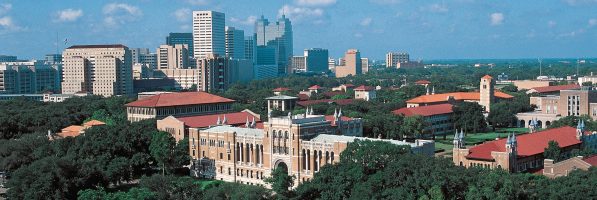Foster Ranks 1st in MBA Job Placement

How do you choose an MBA program? You might look at faculty, research, course work and alumni just to name a few. But what about job placement? Why attend an MBA program and spend all that time and money if you can’t improve your job situation afterward? Well, there’s great news for MBAs at University of Washington’s Foster School of Business. BusinessWeek recently named Foster as the number one school in job placement for the ‘Top 20 Full-Time MBAs in the U.S.’ Continue reading…
Jones Full-Time MBA Named Top Ten Program in the U.S.

The full-time MBA program at the Rice University – Jones Graduate School of Business was recently named the 8th best program in the country for 2016 by Bloomberg BusinessWeek, a position which will have implications far and wide for the school and those involved with it.
London Business School Leads 2016 Bloomberg BusinessWeek International MBA Rankings

London Business School (LBS) climbed to the very top spot on Bloomberg BusinessWeek’s ‘Best International Business Schools of 2016‘ list, released yesterday, up a notch from last year’s second-place showing. INSEAD, which has campuses in France, Singapore and Abu Dhabi, followed right behind, inching up from number three last year to second place this year. The United Kingdom’s other powerhouse business schools, Oxford’s Saïd Business School and Cambridge’s Judge Business School, fell in line at third and fourth respectively, representing a three-spot jump for Saïd over last year and a four-spot jump for Judge. Spain’s IESE also experienced gains year over year, sidling up two spots from last year’s seventh place to round out this year’s top five.
But as some schools inched up, others fell—most notably Western University’s Ivey Business School in Canada, which plummeted from the number one spot last year to 10th in 2016. Spain’s IE Business School and Switzerland’s International Institute for Management Development (IMD) each slipped two spots, to sixth and seventh this year. But Italy’s SDA Bocconi School of Management sauntered up four spots from 12th last year to land comfortably within the top 10 this year, at number eight. And Melbourne Business School has perhaps the most cause for celebration. The Australian school shot up a whopping 14 places to come in at number nine.
Like Bloomberg BW’s U.S. MBA rankings, released last month, its international MBA rankings are compiled using a methodology that assesses schools based on five factors: a survey of MBA recruiters, weighted at 35 percent; an alumni survey, weighted at 30 percent; a survey of the 2016 graduating class, weighted at 15 percent; the school’s placement rate, weighted at 10 percent, and the starting compensation for the class of 2016, weighted at 10 percent.
What this means, as the magazine points out, is that “it’s possible to rank highly without knocking every category out of the park.” Case in point, INSEAD came in second overall even though it ranked a meager 25th (out of 31) for job placement. (Bloomberg BW measures job placement as the percentage of graduates who land full-time employment within three months of graduation out of those seeking it—the figure reported by INSEAD was 81.6 percent, compared to an average 85.9 percent among all schools).
In terms of pay growth enjoyed by graduates of the 31 schools included in Bloomberg BW’s list, students came in at an average salary of $50,000, jumped to an average starting salary of $90,000 for their first job out of school and reported an average salary of $141,750 six to eight years out from graduation. The average MBA debt taken on by graduates across all ranked schools, meanwhile, was $40,000.
At a glance, here are the top 10 best international MBA programs in 2016 as ranked by Bloomberg BW:
- London Business School
- INSEAD
- Oxford (Saïd)
- Cambridge (Judge)
- IESE
- IE
- IMD
- SDA Bocconi
- Melbourne
- Western (Ivey)
As always, those of us here at MetroMBA encourage applicants to use rankings as just one of many means of evaluating which MBA program is the best fit to their individual needs and goals.
This article was republished with permission from Clear Admit.
Businessweek Ranks Smith Among Nation’s Best Full-Time MBA Programs

Bloomberg Businessweek released its annual ranking of the best U.S. full-time MBA programs last week. While there were some surprising changes in the 2016 rankings, the Robert H. Smith School of Business was given the same ranking by the publication for 2015, coming in at 33rd overall in the U.S. Continue reading…
Amid Roller Coaster Rides for Some, HBS Stays Atop Bloomberg BusinessWeek Ranking

For the second consecutive year, Harvard Business School (HBS) tops the Bloomberg BusinessWeek annual ranking of MBA programs—released today—making it one of the few leading schools that didn’t experience shifts in a list that holds lots of changes this year over last.
Brexit And The International MBA

The shockwave of the U.K.’s vote to leave the European Union in late June, 2016, caused an immeasurable amount of ripple effects—many of which are, still, difficult to quantify. Stocks immediately descended upon hearing the news of UK voters opting to the leave the EU by a close margin of 52 percent to 48 percent. Just four months after the move, the value of the English pound fell to its lowest rate in 31 years, according to the Wall Street Journal.
The long-term effect of the vote will take years—potentially decades—to determine. And one of the many areas potentially feeling those drastic effects is the MBA market in London.
As the financial epicenter of the world, London’s prestigious business schools have potentially a lot to lose when it comes to the value of the MBA, not mention the overall cost of earning one. Economic analysts have already speculated that the price of earning an MBA will diminish because of the value of the pound, but small purchases (like the brand new Apple MacBook Pro) will be more expensive in the U.K. than other markets because of the Brexit effect. So concerns, to put it lightly, are all over the map.
According to reports, new U.K. prime minister Theresa May has already gone on record saying that the number of international students joining the UK will be reduced in light of the vote, which was significantly driven by immigration concerns.
“As Home Secretary,” writes Bloomberg reporter Lance Lambert, “she implemented visa changes that made it harder for students from abroad to stay in the country after graduation. A crackdown on immigration was at the heart of the ‘Leave’ movement calling for Britain’s exit [from the EU].”
A crackdown in such a manner could drive a significant portion of potential students to competitive U.S. business schools, making the all-important talent pool more shallow in the U.K.
This isn’t the first attempt from May to curtail international students in recent years. As Home Office Secretary, May imposed tighter restrictions on student visas, which went into effect in 2015. The Chartered Association of Business Schools notes, “Non-EU first-year students studying business and administration in the country last year dropped 8.6 percent to 60,190, the lowest level since 2009-10.”
Of the £3.25 billion business students enter into the U.K. economy, £2.4 billion comes from international students—roughly 73 percent of the total amount. And with the potential £51 billion loss in revenue from British banks, the prestige of joining the finance industry in England may begin to deflate.
Not all news is dour, however. Considering the long-term effects haven’t yet played out, there remains some steady optimism that the negative effects won’t be as disastrous as some speculated.
Andrew Likierman, dean of London Business School, spoke with Bloomberg, saying, “In all of the dealings I’ve had with politicians … our students are precisely who they want to attract to the U.K.” He hopes the moves won’t eliminate top-tier talent from entering the country, rather, weed out the potentially weaker applicants.
“This isn’t the first time people have gotten anxious about globalization. This is just the latest of that manifestation,” Likierman says. “What we’re offering students from all over the world is to get a very global view of business. And the demand for that isn’t going away.”
With preparation for the full move still in its early stages (the U.K. doesn’t officially leave the EU until March 2017), how it will play out is exceptionally uncertain. John McDonnell, Shadow Chancellor of the Exchequer, has gone on record saying that May and her cabinet are still in a “make it up as they go along” type of strategy, which probably doesn’t espouse confidence. The long-term success of the move may be predicated on how the country handles working with international markets, which also affects the value of its academic institutions and the aforementioned MBA programs.
If anything is certain, it is that MBA students will have a large opportunity to learn about the changes government initiatives have on businesses, both domestic and international. It’s just a matter of whether or not students will be in London to learn about it.
